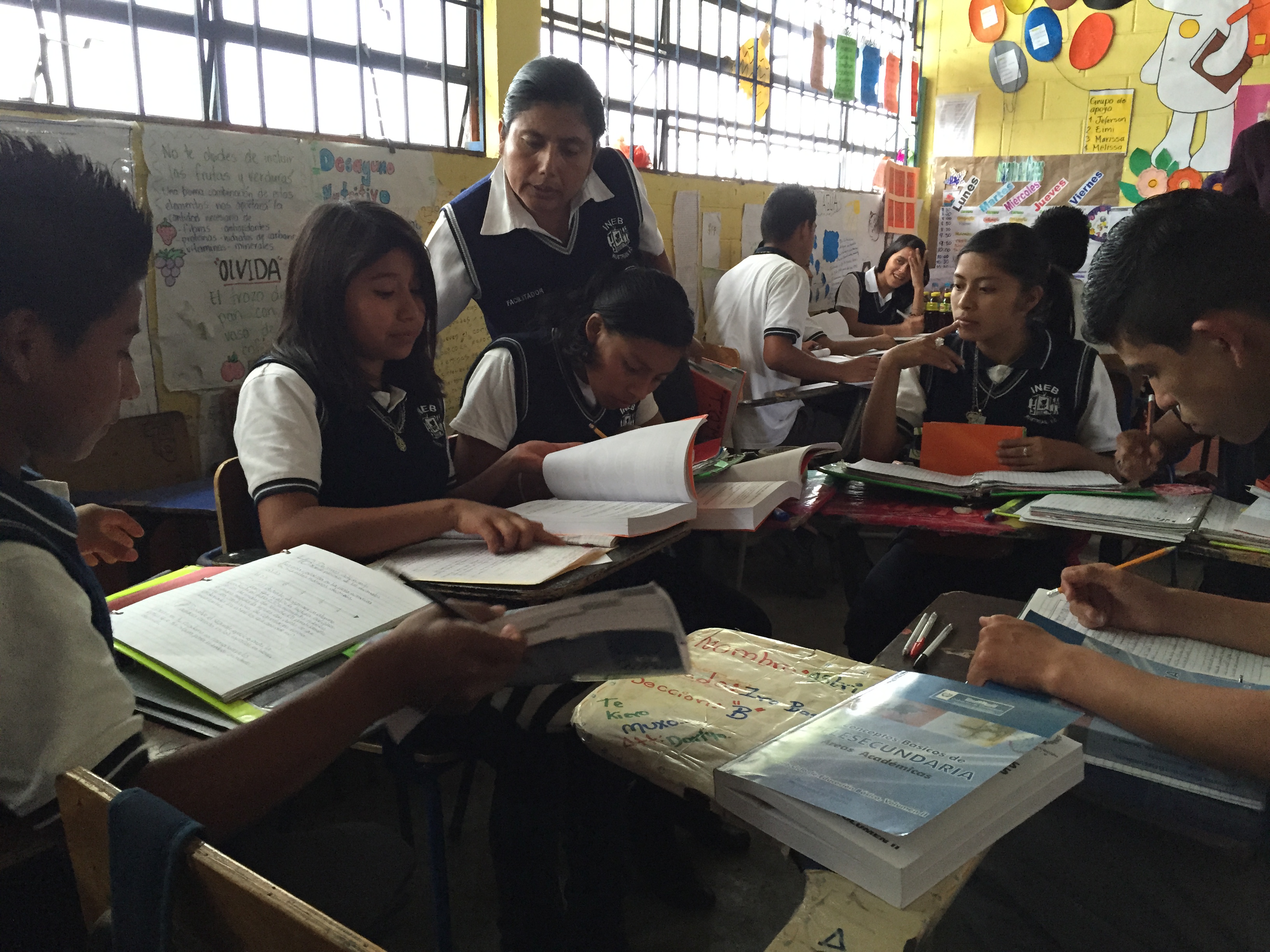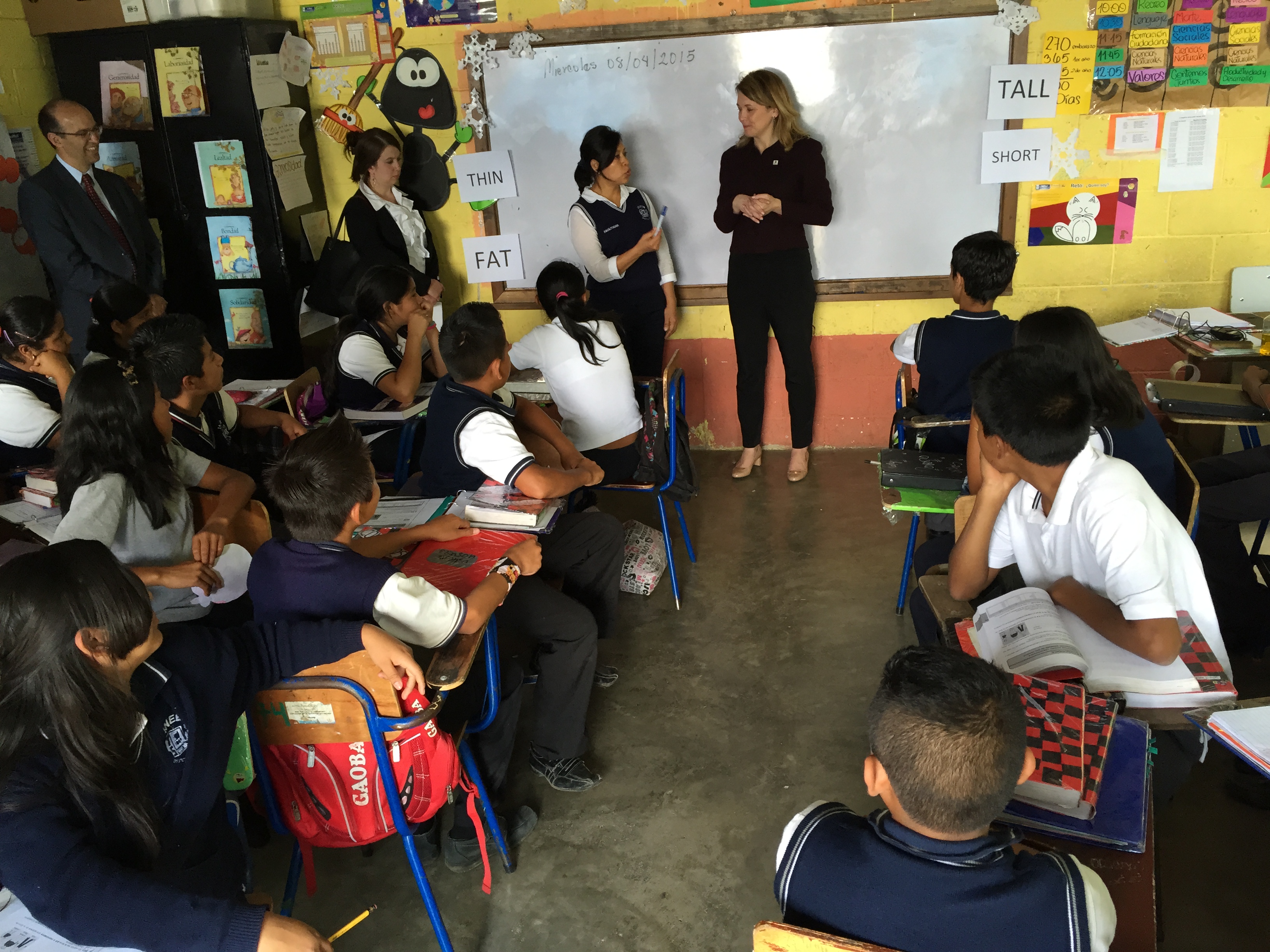
During my recent visit to Guatemala, I was reminded once again of the enormous opportunities MCC has to make a difference in peoples’ lives in some of the world’s poorest countries.
I was privileged to sign MCC’s $28 million Threshold Program Agreement on April 8 with Guatemala, launching a partnership to improve tax collection, which will help fund improvements to secondary education and other essential public services.
While all Guatemalans recognize the importance of education, adequate funding for education continues to be a challenge. Guatemala has one of the lowest levels of tax revenue in the world, and this has resulted in secondary education spending per student that is less than half the average in Latin America.
At the end of Guatemala's civil war in 1996, fewer than half of children completed primary school. Since then, significant progress has been made and today about 83 percent of children complete their primary education.
But while more progress is needed in primary education, the situation in secondary education is urgent. Fewer than half of Guatemalan youngsters finish ninth grade and of those who do, only 8 percent pass the standard competency test for reading and math. This means that most Guatemalans leave school without the skills they need to get a good job, and only a small fraction are adequately prepared to compete in a globalized economy.

MCC CPA
MCC CEO Dana J. Hyde visits a classroom at Escuela Rustrian in Guatemala's Villa Canales neighborhood. MCC's $28 million threshold program will help improve teacher training and secondary education opportunities for Guatemalan youngsters.
This was brought home to me during a visit to the Escuela Rustrián in Villa Canales, about an hour’s drive southeast of Guatemala City through winding mountain roads. The students—who start their school day at 1 p.m. because they are using the same classrooms used by primary school students earlier in the day—were attentive and enthusiastic. But they were packed into the small rooms and with competing interests, such as harvest work or day work in construction, it’s easy to see how they would be tempted to drop out, especially if they fail a grade. I was inspired by the teachers, who are passionate about education, proud of their work and eager to have support to improve their teaching practices to help their students succeed.
MCC will help make a difference in the lives of these students and their peers across the country by partnering with Guatemala’s Ministry of Education to establish a sustainable teacher training program, support parents’ associations that seek to improve school performance and develop technical degrees that respond to labor market demand and help youth find good jobs.
The cornerstone to the threshold program’s success will be the engagement of its stakeholders, not just the government entities charged with implementing reform, but also the members of civil society who know well Guatemala’s challenges on the ground. I had productive meetings with private sector representatives, as well as the leaders of Guatemala’s majority indigenous population. It will take support from civil society and the private sector to expand and sustain these planned improvements through higher tax and customs revenues.
There is a lot of hard work ahead, and MCC is deeply committed to making this program a success. It is our joint commitment to a shared agenda of economic freedom, investment in people and good governance that will attract private investment, create jobs and pave the way to prosperity and security for the people of Guatemala.

